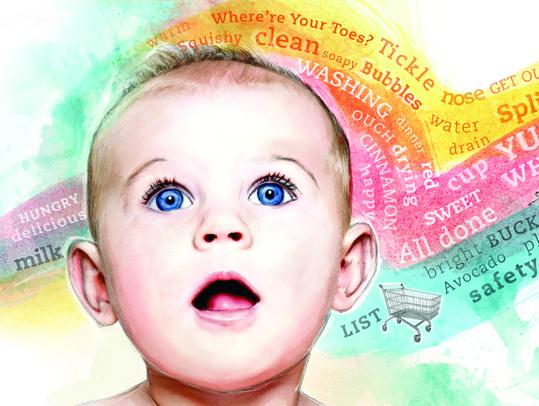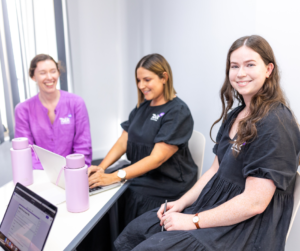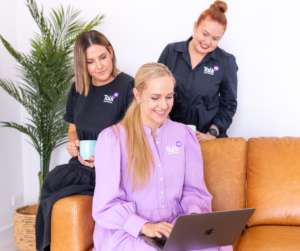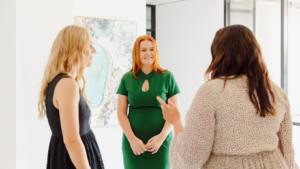Ever wondered how babies learn to talk and when they should start talking? Children learn to speak by being spoken to. Through play, children are able to learn about themselves and the world around them which is fundamental in developing communication and social skills. Regular play is a simple and easy way to support the development of your baby’s communication and allows you to have fun together!
Most babies say their first words between 12-18 months of age. It is okay for these words to not sound exactly how they should. For example ‘ba’ for ball. Before the age of two, children have a huge jump in the amount of words that they are saying and will have a vocabulary of around 50 words. It is around this time that children will start combining two words together e.g. ‘mummy home’ or ‘big car’. By three years of age, children are using sentences of 3-4 words that can be understood by unfamiliar listeners.
Tips for talking with your baby include:
- Talking to your baby often and speaking slowly, clearly and simply.
- Place emphasis on words for objects that are commonly use in your baby’s world (For example, if in the bath you might emphasis the word ‘duck’ when playing with the rubber ducks).
- Repeat the same words in the same situations often. (For example, if you are hanging clothes on the line with your baby name the clothing and use the word ‘up’, ‘shirt up’, ‘socks up’).
- Imitate sounds that your baby makes.
- Take turns when you are talking and playing (just like you would when having a conversation). This will allow your baby to have the opportunity to speak.
Tips for playing with your baby include:
- Creating opportunities for your baby to play with other children. It may be with the neighbour’s baby or going to the local library.
- Watch what your baby does with toys and copy their actions and sounds.
- Sing and make music with your baby. Singing nursery rhymes over and over again with your baby will help them learn language.
If you have any concerns about your child’s early communication development, it is best to seek help early rather than taking a ‘wait and see’ approach. Contact us today!







